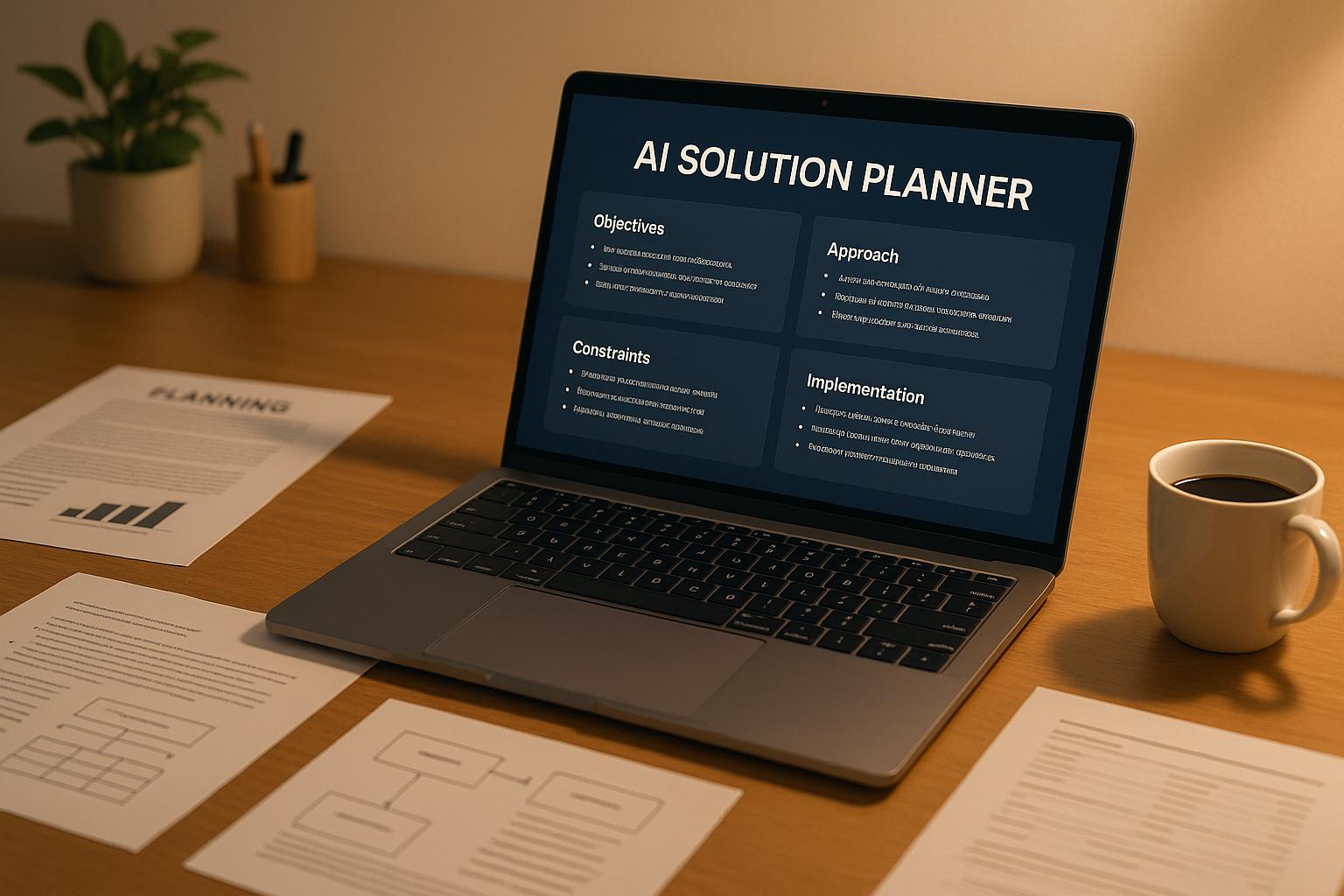Agentic AI tools are reshaping workplaces by automating complex workflows and reducing manual intervention. These tools act as autonomous digital workers, managing tasks across systems with minimal oversight. Here's a quick snapshot of the top tools making waves in September 2025:
- SuperAGI: Open-source framework for autonomous agents; excels in software development, marketing, and customer service. Pricing starts at $2,500/month for enterprise features.
- Anthropic Claude Enterprise: Conversational AI for regulated industries like finance and healthcare; focuses on compliance and multi-step workflows.
- Microsoft Copilot Studio: Low-code platform integrated with Microsoft 365; simplifies workflow automation for all industries.
- NTT Smart AI Agent Ecosystem: Enterprise-grade platform for telecom and manufacturing, offering cloud-agnostic solutions tailored to industry needs.
- Lasso Security Agentic Suite: Focused on securing AI workflows; pricing starts at $50,000/year.
- Creatio Autonomous Workflow Agent: Automates CRM workflows for sales and marketing teams.
- OpenAI Enterprise Agent: High-autonomy tool for tech and creative industries; details remain limited.
- Salesforce Einstein GPT Agent: Automates CRM tasks within Salesforce; ideal for small to enterprise businesses.
- Google Agentic Workspace Tools: Adds AI-driven features to Gmail, Docs, and Sheets for productivity enhancement.
- AI Apps Featured Agentic Suite: Simplifies tool discovery and integrates automation across marketing, education, and more.
Key Takeaway: These tools cater to various industries, offering solutions that range from automating repetitive tasks to managing complex, multi-step processes. Pricing and scalability vary, making it essential to choose based on your business size, industry, and specific needs.
Quick Comparison: See how these tools stack up in terms of autonomy, ease of integration, and pricing below.
| Tool | Autonomy Level | Integration Ease | Primary Industries | Pricing (USD) | Scalability |
|---|---|---|---|---|---|
| SuperAGI | High | Moderate | Tech, Research | $2,500+/month | Enterprise |
| Anthropic Claude Enterprise | High | Easy | Legal, Finance, Healthcare | $500–$2,000/month | Enterprise |
| Microsoft Copilot Studio | Medium-High | Very Easy | All industries | $200–$1,200/month | Enterprise |
| NTT Smart AI Agent Ecosystem | High | Moderate | Telecom, Manufacturing | Custom pricing | Enterprise |
| Lasso Security Suite | Medium | Easy | Cybersecurity, Finance | $50,000/year+ | Mid to Enterprise |
| Creatio Workflow Agent | Medium-High | Easy | Sales, Marketing, Service | $250–$800/month | Small to Enterprise |
| OpenAI Enterprise Agent | Very High | Moderate | Tech, Creative, Consulting | $600–$3,000/month | Enterprise |
| Salesforce Einstein GPT | Medium | Very Easy | Sales, Marketing, Service | $150–$1,000/month | Small to Enterprise |
| Google Workspace Tools | Medium-High | Easy | Education, Collaboration | $180–$900/month | Small to Enterprise |
| AI Apps Featured Suite | Medium | Very Easy | Marketing, Education | Flexible subscription | Small to Enterprise |
Bottom Line: Agentic AI tools are no longer optional - they're becoming a critical part of staying competitive in today’s fast-paced business environment.
7 Best AI Tools for Advanced Automations & AI Agents in 2025
1. SuperAGI
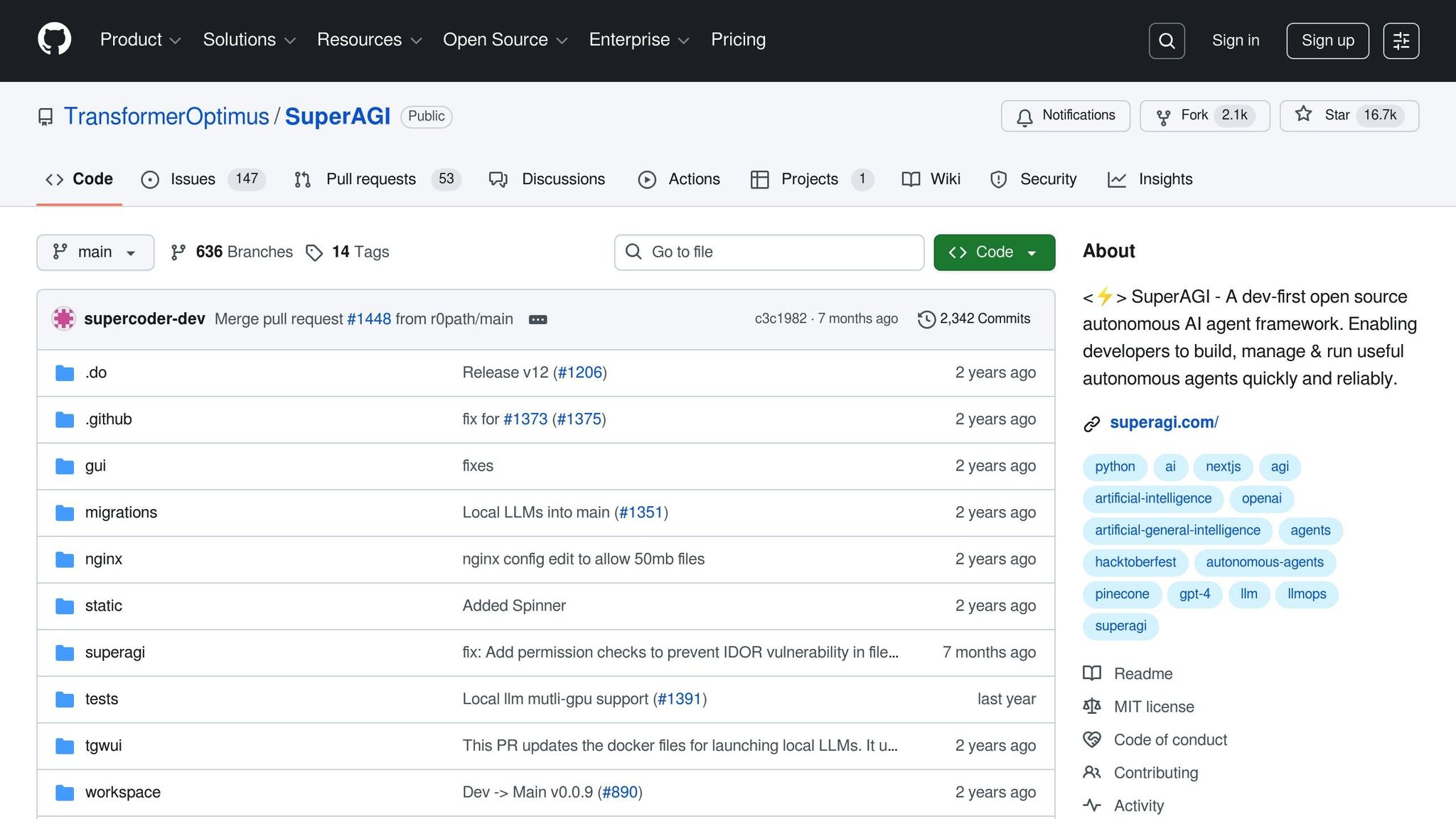
SuperAGI is an open-source framework for autonomous AI agents, designed to help organizations build and deploy intelligent systems capable of handling complex tasks independently. Unlike traditional AI tools that require step-by-step instructions, SuperAGI agents can plan workflows, make decisions, and adjust their strategies in real-time, responding to feedback and changes in their environment. Let’s explore its functionality, use cases, integration options, and pricing.
Level of Autonomy and Agent Capabilities
SuperAGI operates with a high degree of autonomy, thanks to its multi-agent architecture. These agents work together to break down larger goals into smaller, manageable tasks, execute them, and self-correct when faced with challenges. Equipped with a reasoning engine, agents can assess their progress, refine their approach, and even bring in additional specialized agents when necessary.
The system’s memory persistence allows agents to learn from past experiences, improving their efficiency and predicting potential issues over time. Built-in safety features ensure agents stay within their defined boundaries, preventing actions that could harm business operations. This mix of adaptability and safeguards makes SuperAGI a versatile tool across various industries.
Industry-Specific Use Cases
SuperAGI is already making waves in several fields:
- Software Development: Agents can autonomously handle tasks like code reviews, bug fixes, and deployment. They can monitor repositories for security issues, generate documentation for new features, and even update project management tools to reflect progress.
- Marketing: Marketing teams use SuperAGI agents for campaign management, including market research, competitor analysis, and content creation. These agents can analyze customer sentiment, tweak messaging strategies in real time, and optimize ad spending based on performance data - all without manual input.
- Customer Service: In support roles, agents excel at resolving tickets by accessing multiple databases, coordinating with departments, and delivering personalized solutions. They also maintain detailed interaction records for future reference.
Seamless Integration with Existing Workflows
SuperAGI’s API-first design ensures compatibility with most business systems and software stacks. Pre-built connectors for tools like Slack, GitHub, Salesforce, and Google Workspace make it easy to integrate agents into existing workflows without causing disruptions. Configuration is straightforward, requiring minimal coding and simple authentication setups.
The platform supports a step-by-step implementation approach, allowing businesses to start with basic automation tasks and gradually scale up as teams become more familiar with the technology. Real-time monitoring dashboards provide a clear view of agent activities, helping IT teams track performance and address any issues quickly.
Pricing and Scalability for US Businesses
SuperAGI’s core framework is free, making it an attractive option for startups and small businesses experimenting with autonomous AI. For enterprise-level features, pricing starts at $2,500 per month for teams of up to 50 users, while larger deployments range from $15,000 to $45,000 annually.
The platform is built to scale, enabling organizations to deploy multiple agents across cloud environments or on-premises infrastructure. This flexible pricing model makes it a cost-efficient choice for US businesses looking for automation solutions that can grow alongside their operations.
2. Anthropic Claude Enterprise
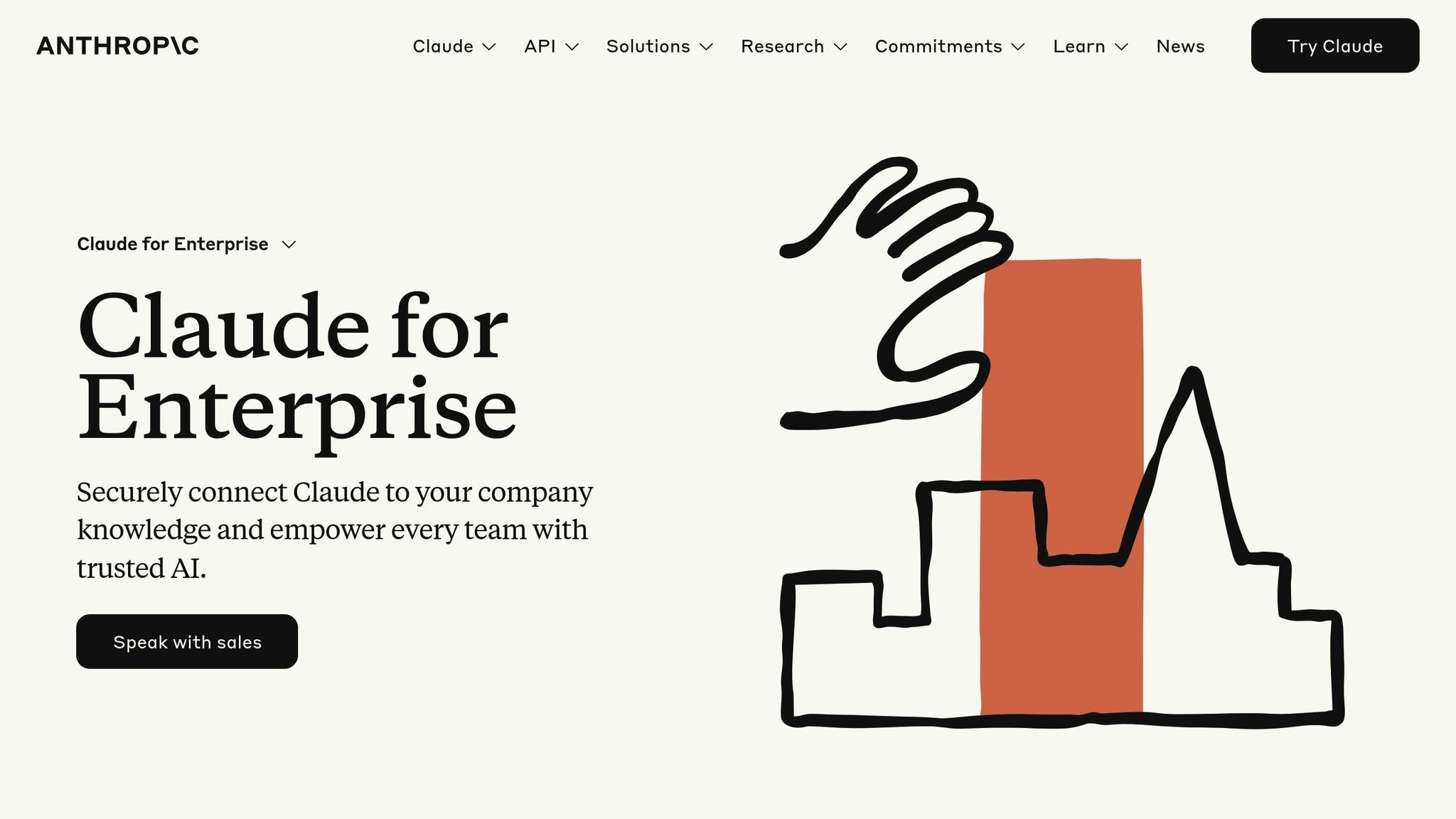
Anthropic Claude Enterprise is a conversational AI platform designed to simplify and optimize business operations. It achieves this through automated, multi-step workflows and ongoing natural language interactions, making it a valuable resource for industries like financial services, healthcare, and manufacturing.
One of the platform's standout features is its seamless integration with existing IT systems. This allows businesses to incorporate it into their operations with minimal disruption, helping to maintain current workflows while reducing the need for constant manual intervention.
As businesses increasingly adopt agentic AI solutions, early feedback suggests that organizations in key sectors are exploring how Anthropic Claude Enterprise can improve process management and streamline operations. The platform is positioned to help businesses achieve greater efficiency across a range of functions.
Additionally, it provides flexible deployment options and customizable pricing plans. For more information on features and pricing, reach out directly to Anthropic.
3. Microsoft Copilot Studio

Microsoft Copilot Studio takes automation within Microsoft 365 to the next level by offering a low-code platform for creating custom AI agents. This tool simplifies the process of building automated workflows, making it accessible even for those without extensive technical expertise.
Level of Autonomy and Agentic Capabilities
At its core, Microsoft Copilot Studio provides a low-code agent builder capable of handling multi-step processes with ease. Thanks to its built-in natural language processing, these agents can understand user commands, maintain context, and execute tasks efficiently.
Integration with Existing Workflows
One of the standout features of Copilot Studio is its seamless integration with Microsoft 365 applications like Teams, SharePoint, and Outlook. This compatibility allows users to design tailored automations that fit right into their existing workflows, all without requiring extensive coding knowledge.
Scalability
Designed with flexibility in mind, Microsoft Copilot Studio can scale to meet the needs of both small teams and large enterprises. Its cloud-based infrastructure ensures it can adapt to changing workload demands, providing reliable performance across various deployment sizes.
4. NTT Smart AI Agent Ecosystem
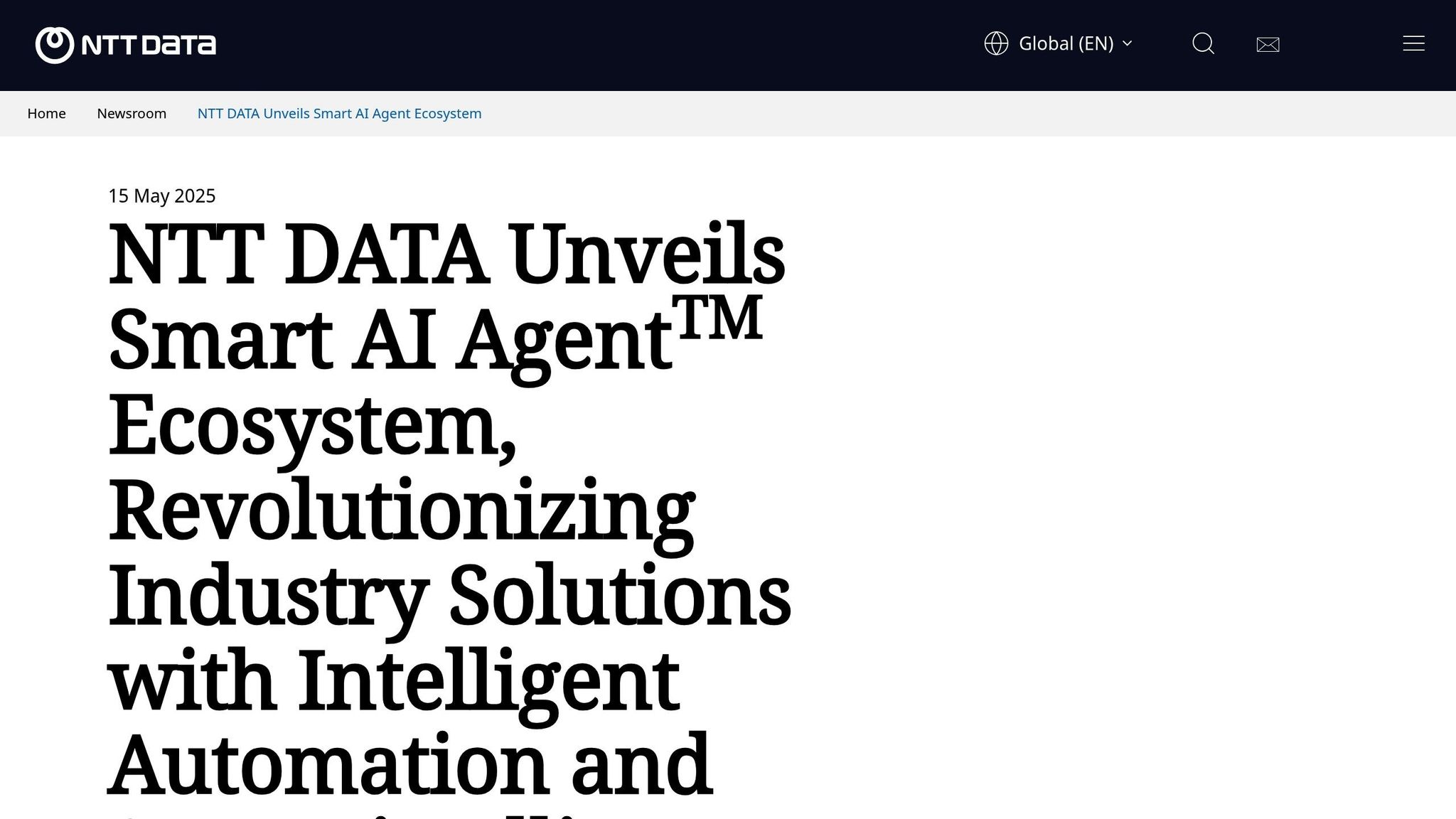
The NTT Smart AI Agent Ecosystem is an enterprise platform designed to transform traditional workflows into autonomous operations. Its cloud-agnostic design ensures compatibility with diverse infrastructures, allowing businesses to modernize operations without sacrificing their existing technology investments.
Here’s a closer look at its standout features, including its autonomy, integration capabilities, and real-world applications.
Level of Autonomy and Agentic Capabilities
This ecosystem goes beyond conventional automation by introducing enterprise-grade intelligence. Its proprietary plug-in technology upgrades legacy Robotic Process Automation (RPA) bots into autonomous intelligent agents. These agents can make decisions, take initiative, and collaborate with human workers without requiring constant oversight. NTT DATA has already implemented hundreds of these Smart AI Agent instances, enabling clients to manage complex processes that demand real-time decision-making [8, 12].
What sets this platform apart is its ability to allow AI agents to proactively plan workflows and address unforeseen challenges. By handling routine and time-consuming tasks, these agents free up human employees to focus on more strategic, innovative, and creative responsibilities.
Industry-Specific Use Cases and Applications
The ecosystem is tailored to meet the unique demands of different industries. For example, it ensures strict compliance in financial services and enables real-time optimization in manufacturing. Additionally, the platform includes a marketplace offering a wide range of agents, Large Language Models (LLMs), and Small Language Models (SLMs), all customized for specific industry needs.
Ease of Integration with Existing Workflows
A major strength of NTT’s platform lies in its seamless integration with existing systems. Its cloud-agnostic nature ensures compatibility with major cloud providers like Microsoft Azure, AWS, and Google Cloud Platform, giving organizations the flexibility to avoid vendor lock-in and work within their preferred technology stacks [8, 12, 14].
The platform also provides managed services throughout the AI lifecycle, from initial planning to large-scale deployment. This comprehensive support ensures the smooth incorporation of agentic AI into existing workflows, enhancing processes without unnecessary disruption.
Pricing and Scalability for US Organizations
The platform’s modular structure and scalable pricing make it accessible to organizations of all sizes across the United States. NTT DATA has projected $2 billion in revenue by 2027, driven by the adoption of agentic AI [9, 13]. This growth reflects the platform’s ability to scale with businesses as they validate their methods and refine their processes.
For companies in the U.S. exploring implementation, NTT advises forming cross-functional teams and adopting flexible architectures to effectively manage AI deployments. Emphasis on strong security and governance standards ensures that organizations can confidently integrate agentic AI into their operations while maintaining compliance and safeguarding data.
5. Lasso Security Agentic Suite
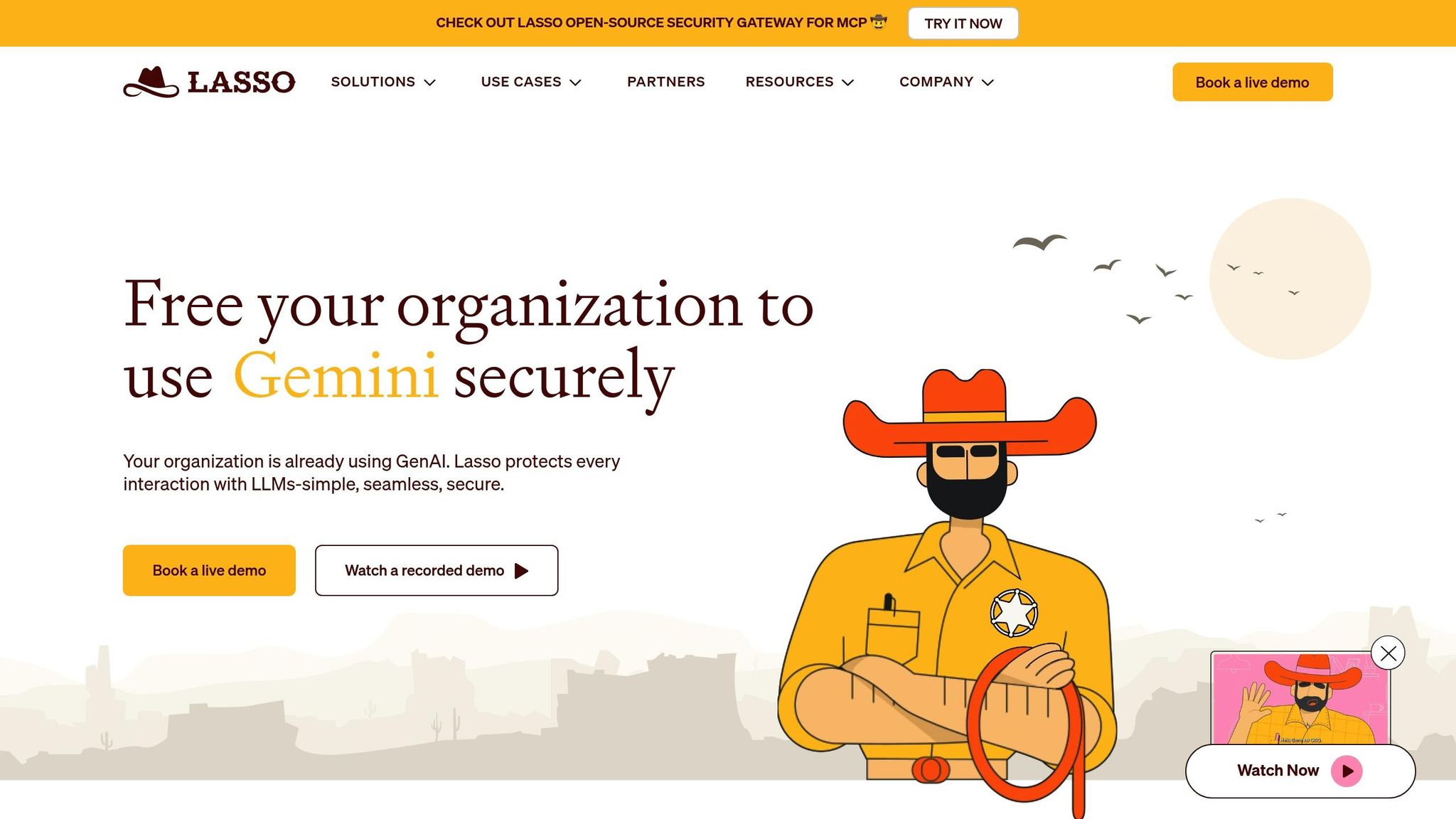
The Lasso Security Agentic Suite is designed to safeguard enterprise-level LLM deployments. Offered as a SaaS solution through AWS Marketplace, it seamlessly weaves security into AI workflows. AWS takes care of deployment, scalability, and cloud integration, ensuring a smooth experience.
Pricing begins at $50,000 per year for the Secured Gateway for LLMs service, with usage fees set at $0.01 per unit. Flexible payment options are available, whether you prefer upfront payments or installments through AWS billing. For tailored solutions, you can reach out directly at sales@lasso.security.
This comprehensive security framework highlights how AI tools are adapting to address the unique demands of enterprise environments.
6. Creatio Autonomous Workflow Agent
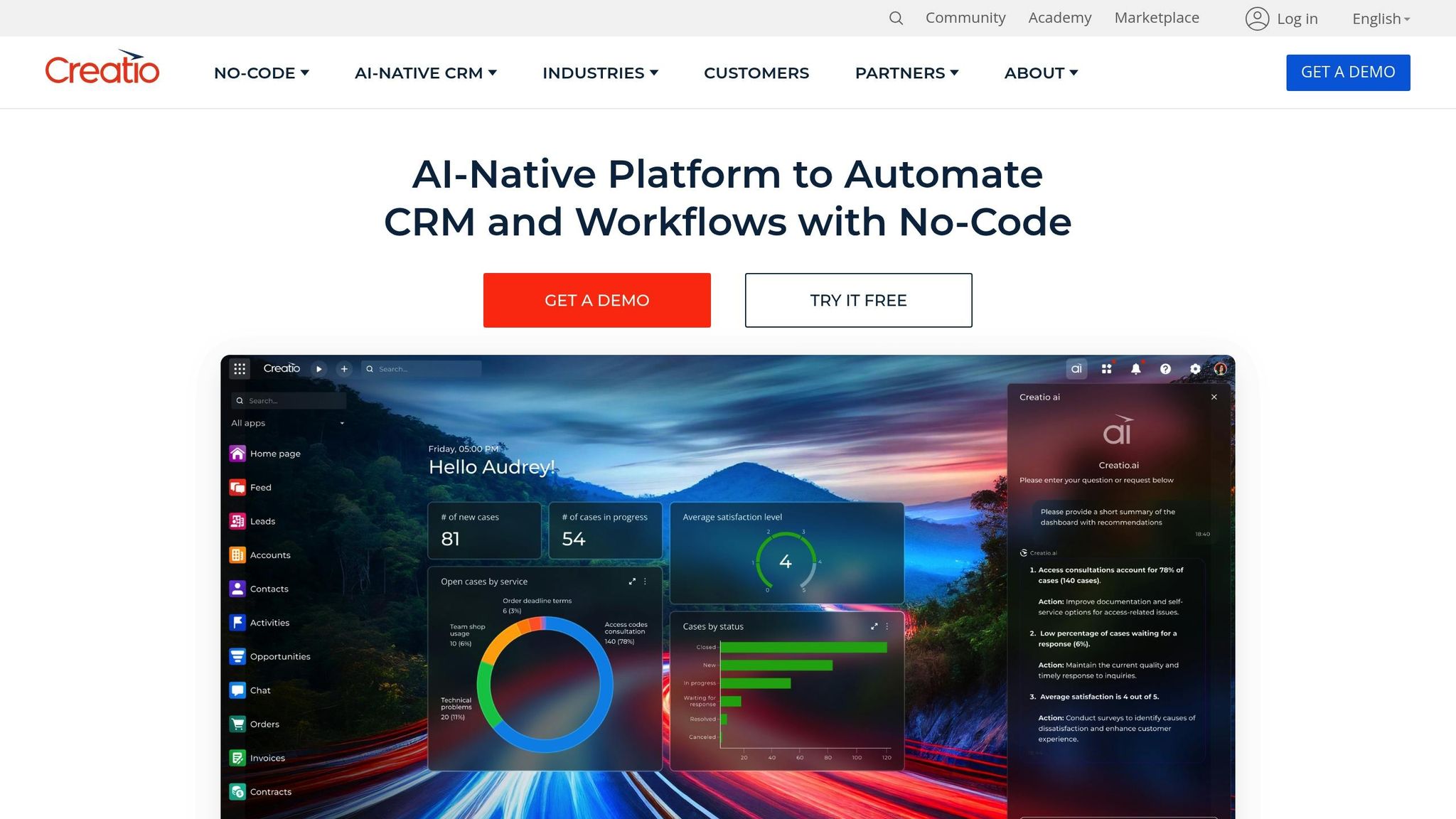
Creatio has unveiled its Autonomous Workflow Agent, designed to simplify and automate business workflows. This tool aims to take the hassle out of managing complex processes by handling tasks independently. While we await further details on its features, integration options, and pricing, it’s clear that Creatio is stepping into the spotlight with this promising solution. Stay tuned for updates as more information becomes available.
sbb-itb-212c9ea
7. OpenAI Enterprise Agent
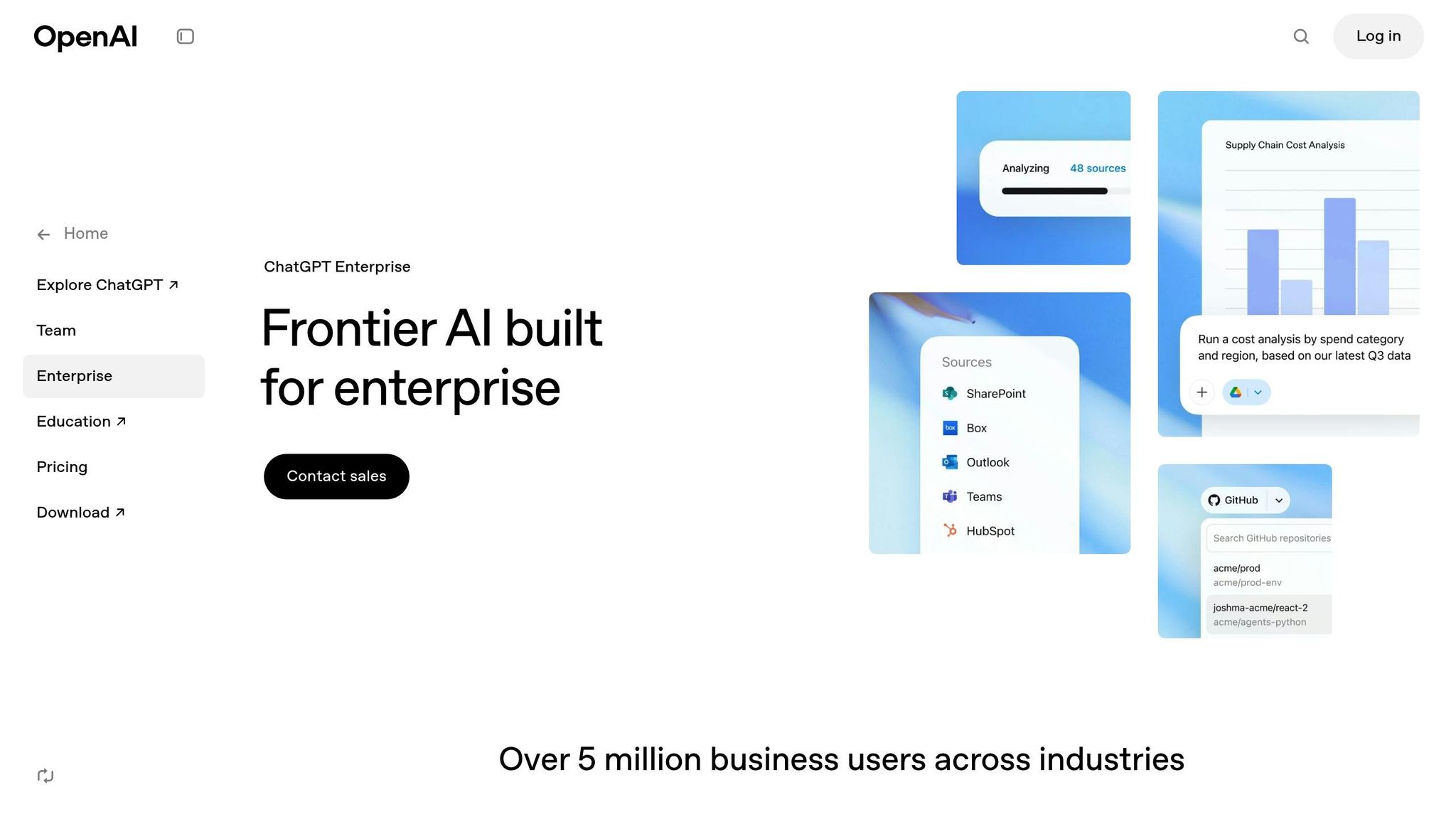
Details about the features, integrations, and pricing for the OpenAI Enterprise Agent remain under wraps for now, leaving many in the industry curious about what’s to come. While information is still scarce, there’s already speculation that this tool could play a major role in reshaping how enterprises approach AI-driven workflows.
As more updates become available, we’ll incorporate them into our in-depth tool comparison. The rapid development in agent-based AI solutions highlights the exciting changes happening in this space, and our upcoming comparison table will provide a closer look at these advancements.
8. Salesforce Einstein GPT Agent
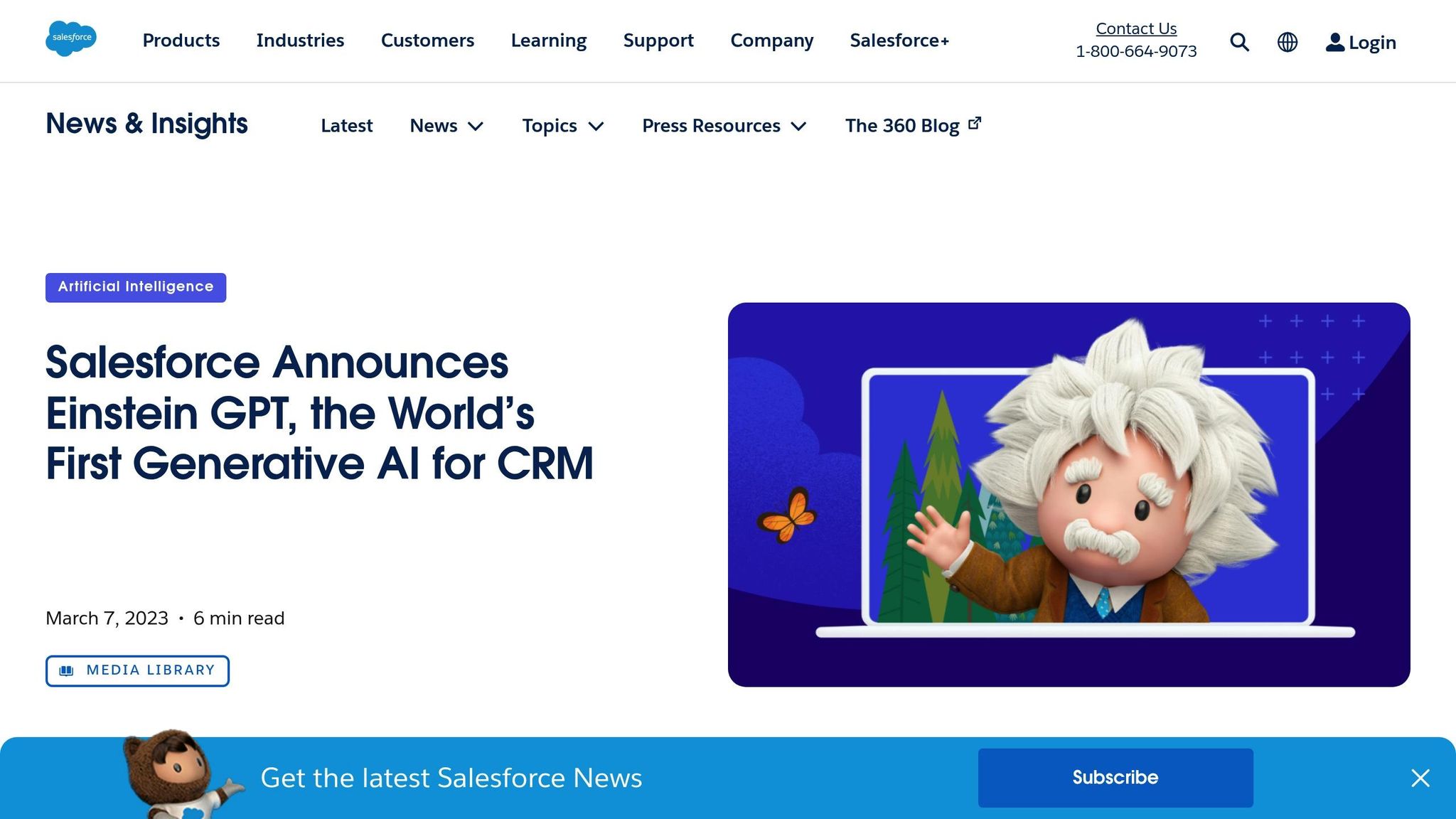
Salesforce Einstein GPT Agent is a generative AI tool designed to simplify customer relationship management within the Salesforce platform. By automating repetitive tasks for sales, service, and marketing teams, it helps businesses save time and focus on more strategic activities. Since it integrates seamlessly with existing Salesforce setups, teams can quickly start using its autonomous features to improve customer interactions. This tool is part of a larger trend toward automating workflows in the workplace, aiming to make processes more efficient and customer-focused.
9. Google Agentic Workspace Tools
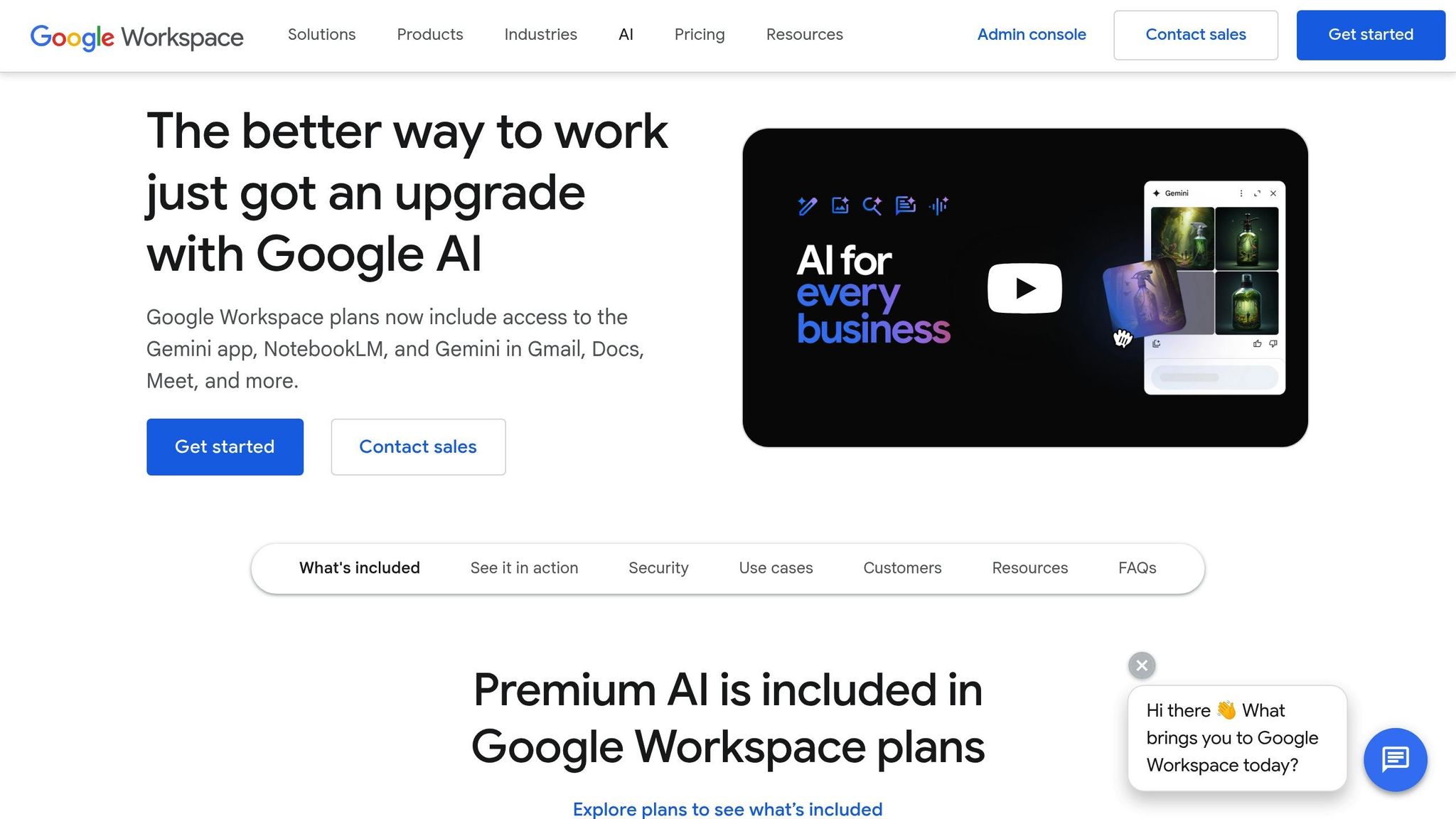
Google has rolled out agentic features across its Workspace suite - Gmail, Docs, Sheets, and Drive - designed to simplify workflows and improve productivity. These tools align with the broader trend of advanced automation solutions, offering practical support for managing everyday tasks.
The new features focus on automating repetitive tasks like email sorting, document editing, and data processing. By learning from user interactions and established workflows, they aim to make daily operations smoother and more efficient.
What’s great is that these tools integrate directly into your existing Google Workspace setup, requiring minimal effort to get started. Details about their full functionality and pricing will be shared as the tools continue to develop.
10. AI Apps Featured Agentic Suite
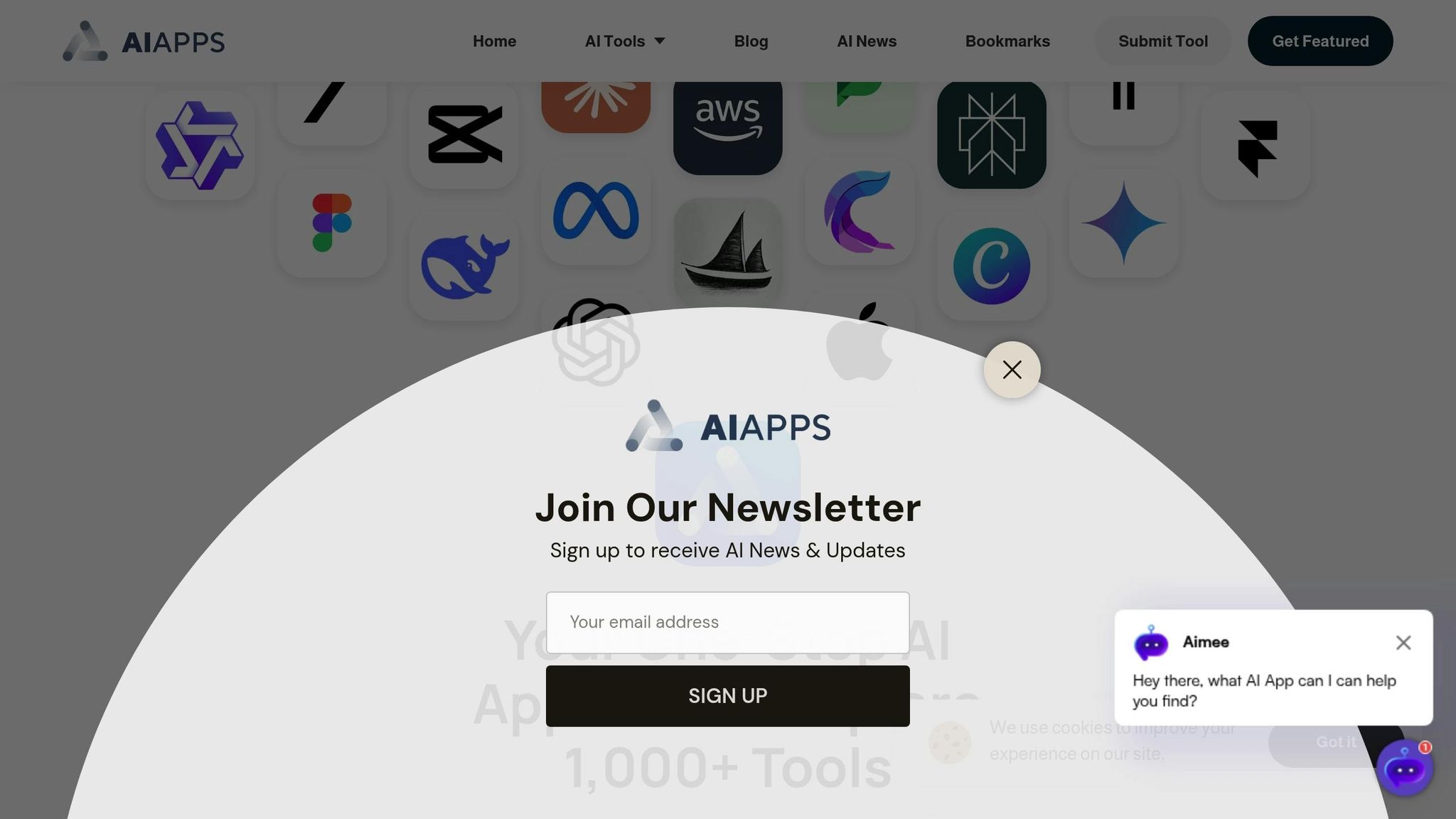
AI Apps has rolled out its Featured Agentic Suite, marking a significant step in reshaping how digital work is approached. This suite builds on its existing platform of over 1,000 curated AI tools, introducing autonomous features that simplify the discovery process. By doing so, AI Apps has shifted from being a simple directory of tools to a more dynamic, automation-driven platform - a move aimed at boosting workplace productivity.
The suite is crafted to help users quickly pinpoint the tools that align best with their business goals. AI Apps highlights the Featured Agentic Suite as a game-changer for streamlining workflows across industries like marketing, education, and manufacturing. The platform plans to share more technical details and case studies to showcase its real-world business applications.
What sets this suite apart is its user-friendly integration with existing business systems. It’s available through a flexible subscription model tailored to businesses of varying sizes in the U.S. This approach ensures that companies, regardless of scale, can access practical solutions to address modern challenges.
Tool Comparison Table
When choosing an agentic AI tool, it’s important to weigh factors like autonomy, ease of integration, scalability, and industry fit. Below is a detailed comparison to help U.S. businesses navigate their options.
| Tool | Autonomy Level | Integration Ease | Primary Industries | Pricing (USD) | Scalability | Key Strengths | Main Limitations |
|---|---|---|---|---|---|---|---|
| SuperAGI | High | Moderate | Tech, Research | $99-$499/month | Enterprise | Advanced reasoning, custom workflows | Steep learning curve |
| Anthropic Claude Enterprise | High | Easy | Legal, Finance, Healthcare | $500-$2,000/month | Enterprise | Safety-focused, regulatory compliance | Premium pricing |
| Microsoft Copilot Studio | Medium-High | Very Easy | All industries | $200-$1,200/month | Enterprise | Seamless Office integration | Microsoft ecosystem dependency |
| NTT Smart AI Agent Ecosystem | High | Moderate | Telecom, Manufacturing | Custom pricing | Enterprise | Industry-specific solutions | Limited market availability |
| Lasso Security Agentic Suite | Medium | Easy | Cybersecurity, Finance | $300-$1,500/month | Mid to Enterprise | Security-first design | Narrow use case focus |
| Creatio Autonomous Workflow Agent | Medium-High | Easy | Sales, Marketing, Service | $250-$800/month | Small to Enterprise | CRM integration, workflow automation | Limited AI reasoning depth |
| OpenAI Enterprise Agent | Very High | Moderate | Tech, Creative, Consulting | $600-$3,000/month | Enterprise | Cutting-edge capabilities | High resource requirements |
| Salesforce Einstein GPT Agent | Medium | Very Easy | Sales, Marketing, Customer Service | $150-$1,000/month | Small to Enterprise | CRM native integration | Salesforce platform lock-in |
| Google Agentic Workspace Tools | Medium-High | Easy | Education, Collaboration | $180-$900/month | Small to Enterprise | Workspace ecosystem synergy | Google dependency |
| AI Apps Featured Agentic Suite | Medium | Very Easy | Marketing, Education, Manufacturing | Flexible subscription | Small to Enterprise | Tool discovery automation | Newer market entrant |
Key Insights from the Comparison
The tools in this table highlight the growing role of agentic AI in tackling complex workflows across industries. Here’s how they stack up in critical areas:
- Autonomy Levels: Tools like OpenAI Enterprise Agent and SuperAGI excel with very high autonomy, enabling advanced decision-making. On the other hand, solutions like Salesforce Einstein GPT Agent and Creatio focus on guided automation for specific tasks.
- Ease of Integration: Microsoft Copilot Studio and Salesforce Einstein GPT Agent shine in seamless implementation, especially for businesses already using their ecosystems. In contrast, tools like SuperAGI and OpenAI Enterprise Agent offer more customization but require technical know-how to set up.
- Industry Focus: Anthropic Claude Enterprise is a standout for regulated industries like healthcare and finance, thanks to its compliance-first approach. Meanwhile, AI Apps Featured Agentic Suite appeals to businesses looking for streamlined tool discovery across multiple use cases.
Pricing and Scalability
Pricing varies widely, from $150/month for Salesforce Einstein GPT Agent to $3,000/month for OpenAI Enterprise Agent, reflecting the range of capabilities and target audiences. Most tools are designed to scale with enterprise needs, but smaller businesses may find flexible solutions like AI Apps Featured Agentic Suite or Creatio more practical.
Balancing Autonomy and Simplicity
Higher autonomy tools like OpenAI Enterprise Agent offer unmatched flexibility but demand skilled teams for implementation. Simpler tools, while easier to adopt, may trade off some customizability. Businesses should weigh their immediate needs against their long-term AI strategy to find the right balance between autonomy and ease of integration.
Conclusion
As September 2025 rolls in, the workplace landscape is undergoing a profound shift. Agentic AI tools are no longer experimental - they’ve become essential for businesses looking to streamline operations and stay competitive. These solutions are now more accessible and user-friendly, enabling companies of all sizes to automate complex workflows with ease.
Organizations embracing these tools are seeing measurable improvements in productivity and decision-making. Tools like SuperAGI, with its advanced reasoning capabilities, and Microsoft Copilot Studio, known for its seamless integration, are revolutionizing everything from customer service to strategic planning. The variety of tools available ensures that businesses - whether small startups or sprawling enterprises - can find options tailored to their specific needs and budgets.
Early adopters of these technologies are gaining a competitive edge, while those who hesitate risk being outpaced by rivals leveraging these autonomous agents to make quicker decisions and optimize operations.
For professionals seeking the right solutions, the AI Apps platform offers a streamlined way to discover, compare, and integrate agentic AI tools. With over 1,000 curated solutions and advanced filtering features, it simplifies the process of finding tools that align with specific industry goals and business requirements. This platform underscores how AI is reshaping workflows across industries.
The ten tools highlighted above mark the beginning of a shift toward smarter, more autonomous operations. Rapid adoption of these innovations isn’t just an option - it’s becoming a necessity for businesses aiming to thrive in this AI-driven era.
FAQs
How can I select the best agentic AI tool for my business and industry?
How to Choose the Right Agentic AI Tool for Your Business
Selecting the right agentic AI tool starts with understanding your business's specific needs and challenges. Think about the tasks you want to automate, how the tool can help improve decision-making, and whether it fits the unique demands of your industry.
Next, check how well the tool integrates with your existing systems and whether it can grow alongside your business. Prioritize features that allow for smooth integration and flexibility within your current workflow. It’s also a good idea to dig into the provider’s track record - browse case studies and read testimonials to confirm the tool’s reliability and effectiveness for businesses like yours.
By focusing on these considerations, you’ll be better equipped to pick a solution that boosts productivity and helps your business stay competitive in an AI-powered world.
What are the key advantages of using agentic AI tools in your workflow?
Integrating agentic AI tools into your daily workflow can be a game-changer for productivity. These tools take over repetitive and time-consuming tasks, freeing up your schedule for more strategic work. Plus, they adapt and learn as they go, offering real-time support for smarter decision-making.
Beyond saving time, these tools enhance precision and simplify processes across industries like marketing, education, and automation. By refining workflows and tackling complex challenges, agentic AI tools help professionals stay competitive in a rapidly changing work environment.
What should I consider when evaluating the scalability and pricing of agentic AI tools?
When evaluating scalability, consider if the tool can manage heavy user demand, reduce delays (latency), and adjust resource limits to keep operations running smoothly. On the pricing front, explore flexible options such as pay-as-you-go plans, hybrid pricing structures, or models based on outcomes - this ensures costs align with the tool's value.
By focusing on these aspects, you'll be better equipped to choose tools that support your organization's growth while keeping expenses in check and operations efficient in 2025.
